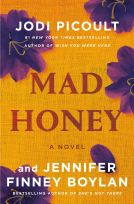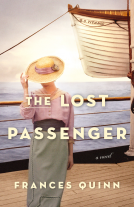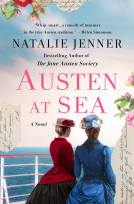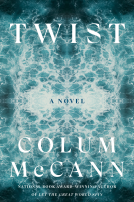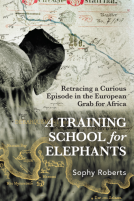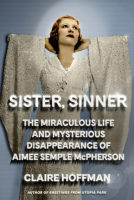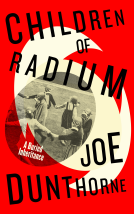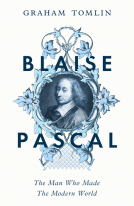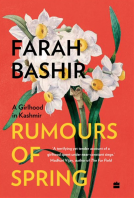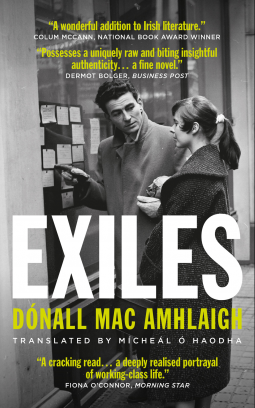
Exiles
by Dónall Mac Amhlaigh
This title was previously available on NetGalley and is now archived.
Send NetGalley books directly to your Kindle or Kindle app
1
To read on a Kindle or Kindle app, please add kindle@netgalley.com as an approved email address to receive files in your Amazon account. Click here for step-by-step instructions.
2
Also find your Kindle email address within your Amazon account, and enter it here.
Pub Date Mar 17 2021 | Archive Date Mar 05 2021
Talking about this book? Use #Exiles #NetGalley. More hashtag tips!
Description
Two Irish migrants on the cusp of new lives in post-war Britain. Two young people who dare to dream of a better life, and dance the music of survival in their adopted homeland.
Afraid that his wife and children will arrive over any day, Trevor is in a hurry to settle old scores with his rivals and to prove himself the top fighting man within his London-Irish community of drinkers and navvies while Nano seeks to escape the stifling conformity and petty jealousies of her peers and forget her failed love-match at home. Will Trevor finally prove himself “the man” and secure the respect that he feels is his by virtue of blood and tribe? Does Nano have it in her to break free of the suffocating bonds of home and community and find love with Lithuanian beau Julius?
Written at a time when the Irish were “building England up and tearing it down again,” and teeming with the raucous energy of post-war Kilburn, Cricklewood and Camden Town this novel is one of the very few authentic portrayals of working-class life in modern Irish literature.
Dónall Mac Amhlaigh (1926-1989) was one of the most important Irish-language writers of the 20th century. A native of County Galway, he is best known for his novels and short stories concerning the lives of the more than half-a-million Irish people who left Ireland for post-war Britain.
Translated by Mícheál Ó hAodha, an Irish-language poet from Galway in
the west of Ireland.
Advance Praise
A wonderful addition to Irish literature.’ – Colum McCann, National Book Award winner
'A cracking read... a deeply realised portrayal of working-class life.' - Morning Star
'Possesses a uniquely raw and biting insightful authenticity... a fine novel.' - Business Post
'This great novel is his best achievement, richly translated for the first time. It captures those times of hardship, of fun, of love and of spite perfectly, when the Irish were "building up and tearing England down".' - Alan Titley
‘I cannot stress strongly enough the importance of bringing this work to a wider readership.’ –Tony Murray, Director, Irish Studies Centre, London Metropolitan University, London
‘Donall Mac Amhlaigh is the most perceptive and informed writer on the Irish in 20th century Britain.’ – Professor Enda Delaney, author of The Irish in Post-War Britain
Available Editions
| EDITION | Other Format |
| ISBN | 9781912681310 |
| PRICE | $11.95 (USD) |
| PAGES | 350 |
Featured Reviews
The relations between Ireland and Britain might be one of the most complicated ones in history. As always, neighbours might find some difficulties reaching out to each other. Upon finishing this book, I was kinda surprised to find out that this work has just been recently translated from Irish to English, even though the Irish edition has been published decades ago. This is indeed a wonderful story that chronicles the extent of Irish migration to Britain, especially concerning the everyday life of Irish workers across the Irish Sea soon after the end of World War II.
Donall Mac Amhlaigh wrote in the style of Christian Socialist tradition. His subjects in this book mainly touch the daily life of working-class migrants from Ireland to Britain. It reminds me somehow of Graham Greene with his works, who happened to be a British writer who was a contemporary of this book’s author. Donall’s words are simple, yet captivating the readers through each sentence without putting too much negative judgment in each character. He describes, but he leaves the readers to judge for themselves what kind of qualities that each character possesses. And his vivid description about the feelings of the dispossessed is superb, in the way that the legacies of Irish workers in the past could be entangled with present-day Europe with its concern in wider migration.
Soon after World War II ended, there was an increasing demand to build the cities in Britain that are torn apart by the wartime bombings. Fundings are poured into war-torn Western Europe through the Marshall Plan, which proved imminent to recover the damage caused by the war. With both factors included, Britain flourished and suddenly jobs were everywhere. This background is set against the impoverished state of Ireland during the same period. It was barely 30 years since Ireland unleashed its independence movement from Britain, and it was clear that the economy was not well which caused half a million workers to leave their hometown in search for a better life in Britain, swallowing their pride in Irish nationalism.
This book particularly focuses on the mass migration of Irish migrants from Connemara and West Kerry to Britain, which resulted in the lost sense of community back home as everyone was leaving in search for a better life. There is endless depiction about longing for home that never was. The characters were forced to leave their home in Ireland for some reasons, and it goes all beyond the economic spectrum. The clash between “old values” that were held dearly in Ireland and “new values” in Britain is something frequently repeated throughout this book. Upon their brief returns, they could no longer recognise their old home as someplace that they used to hold dearly.
The translation of Michael O’Haodha does the job well in describing the harsh truth facing the displacement experienced by millions of foreign workers in post-war Britain. Not only Irish workers, but Britain also received millions of refugees from Eastern Europe who fled Soviet domination after the war. Geographically speaking, Ireland is the closest country to Britain and it even fell under Britain’s domination for centuries. Yet for the Irish workers described here in this book, even life in England could feel like an exile at times. We got three main characters in this book, Niall O’Connell, Trevor Bartley, and Nano Keane who happened to cross their fate at one point during a brief journey on the train, but then went their separate ways. Yet it was through the viewpoint of everyday life of workers such as them that we could analyse fully to what extent migration affect post-war Britain and Ireland.
 Account D, Reviewer
Account D, Reviewer
i think the person who translated this book did a very good job, it flowed well together. I really enjoyed the concept and getting to read an author's work that I wouldn't have.
 Petra R, Reviewer
Petra R, Reviewer
The Drama of Exile.
This is the first opportunity non Irish-speaking readers have had to read McAmhlaigh's powerful novel of the post-war Irish diaspora. Utilizing three separate characters (Who are only glimpsed together once in a Holyhead-bound train in the first chapter) to demonstrate the differing nuances of 'exile'; exile from country, exile from culture and language, exile from opportunity,and their strivings to establish new identities for themselves. The translation retains the rich bounce of the original Irish, and the novel gives a good account of the Irish migrant mindset and how it was to try and retain something of yourself in a new country – something experienced by my own grandparents. Plus, anyone familiar with Camden will have drunk in at least one of the pubs mentioned.
Thanks to Cyngor Llyfrau Cymru and NetGalley for the ARC.
#Exiles, written by one of Ireland’s most prominent twentieth century authors, Dónal Mac Amhlaigh, was originally published in 1986, three years before his death. The original was written in its native Irish',making it inaccessible to English readers until this excellent translation by Micheál Ó hAodha displaying its poignancy and brutal beautiful storytelling. Originating in Ireland in 1950, the book tells the story of its three main characters: Nano, a young woman who emigrates to England to make an income as a nurse’s assistant; Trevor, a rugged man who abandons his wife and sons to move to England to be a 14 hour a day trench digger for the repair of London’s subway; and Niall, who has just gotten released from Ireland’s Army and is bound and determined to find a job and remain in his native Galway. Although the three never meet in real life', their stories are very much intertwined by Ireland’s impoverishment and the alcoholism', brawling' and dysfunctional relationships this leads to. Although the characters are all flawed, I was sorry to finish the book because I felt tied to all of them. They’re written so splendidly, I would bet that you feel tied to them too.
 Mandy J, Reviewer
Mandy J, Reviewer
Donall Mac Amhlaigh is one of the most important Irish-language writers of the 20th century, but sadly I had never heard of him. This novel has now finally been translated into English and I was delighted to get the chance to discover this fascinating novel describing the experience of two young Irish people who escape the lack of opportunity in their impoverished native land to embark on a new life in England where jobs are plentiful. One a nurse, one a navvy, they are willing and able to work hard – often in contrast to their British counterparts. The book is a remarkable chronicle of the life of such migrants, of whom little has been written, making this account even more valuable. The author knew what he was writing about first-hand. He too joined the flood of Irish migrants, working on construction sites in London and the Midlands, including the M1 and M6 motorways. Such Irish navvies comprise an almost forgotten generation, as do the nurses who came over to work in the newly formed NHS. Some scenes are set back in Ireland, highlighting the backwardness and lack of opportunity there with the optimism and freedom of post-war England. It’s not always a happy experience as these young people can feel deracinated and alienated, and their relationships with their co-workers can be difficult. Other immigrants are also featured in the novel, demonstrating that the immigrant experience has changed little since the 1950s. The Irish communities of 1950s London, especially in Kilburn and Camden Town, and in the pubs and dance halls there is convincingly portrayed and altogether this is an atmospheric portrait of Irish life in exile. It’s an autobiographical novel up to a point, which obviously adds to its sense of authenticity and I found it an absorbing and compelling read.
 Lisa C, Reviewer
Lisa C, Reviewer
I didn’t know any of the background of this I..e that it was originally written in irish even though I am a native speaker. I loved it so much. I need to read more like this.
 Reviewer 526728
Reviewer 526728
I loved this novel. It made me miss central London and its rich, multicultural history. All of the characters were so vivid and alive - and the writing, while authentic and sad in parts, was spry and engaging.
Exiles by Donall Mac Amhlaigh translated by Micheal O hAodha
A rare novel that describes the experience of the Irish post war migration to England. This is the first time this novel has been translated into English as part of the Carnival of Voices series by publisher Parthian. The novel depicts the experience of three native Irish speakers and their migration to England to fill the needs of the post war UK economy. Trevor is a navvy, Nano who works in a hospital and Niall who has just left the Irish Army and desperately tries to find work in Ireland but is driven to emigrate because of the hardships facing De Valera’s catholic Ireland. They experience the culture shock of the English Cities and the loss of their own homeland and of a loyalty to an Ireland that could and would not embrace them.
Amhlaigh had a background similar to Niall and throughout this book their is the underlying anger that Ireland did so little for the working class Catholic Communties. An anger that I witnessed growing up amongst the Irish community in Manchester. Amhlaigh’s own father had fought in the War of Independence and now his son had to find a new life in the country that they fought to be independent from. On a personal level I found the stories fascinating as this was the experience of my own parents and some of their siblings. The difficulties of being separated from culture and extended family was not just felt by those who migrated but by the next generation too.
The writing and the translation are also superb and I will be recommending this book to anyone interested in story of the Irish in Britain.
Readers who liked this book also liked:
Jodi Picoult; Jennifer Finney Boylan
General Fiction (Adult), Literary Fiction, Women's Fiction


